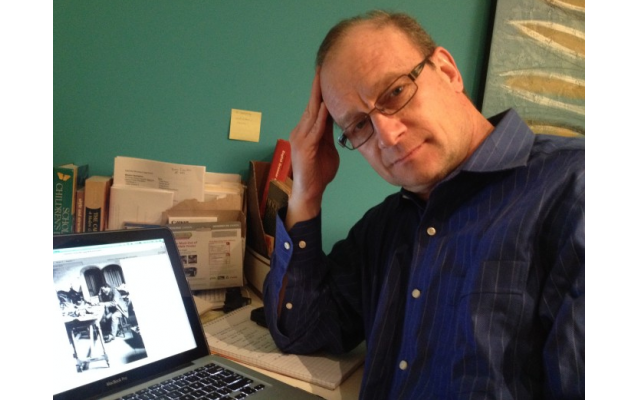A Tie Between 9/11 and COVID-19
Mark Twain warned: “It’s the things we know that just ain’t so,” that get us into trouble.
Dave Schechter is a veteran journalist whose career includes writing and producing reports from Israel and elsewhere in the Middle East.
Writing this column had me stumped.
I wanted to reflect on the 20th anniversary of 9/11, and also express a measure of exasperation with certain segments of society and government over their response to the resurgence of COVID-19. The challenge was finding a connection between seemingly disparate subjects.
Then I remembered the master’s thesis written by my former colleague, Jamie McIntyre. On Sept. 11, 2001, McIntyre was CNN’s military affairs and Pentagon correspondent, and I was the national news desk’s liaison with the Washington bureau. His treatise, written in 2014, was titled “Elements of Disbelief: A Case Study of 9/11 Truthers and the Persistence of Misinformation in the Digital Age.”
McIntyre is an expert in that subject. A snippet of his reply to an anchor’s question has been, he wrote, “deliberately misunderstood, misinterpreted, and misreported to advance a false narrative,” by “truthers” who reject evidence that hijackers crashed American Airlines Flight 77 into the Pentagon, killing all 64 people aboard and 125 more working inside the military headquarters.
McIntyre has engaged these folks in lengthy conversations, but try as he might, he has not changed even one mind in the course of two decades. “It is self-evident that many widely accepted beliefs today are demonstrably untrue, along with widespread skepticism about things that are demonstrably true. The persistence of far-fetched ideas can be surprisingly enduring and stubbornly resistant to even a frontal assault employing undisputed facts and iron-clad logic,” he wrote.
This brings to mind another variety of “truther,” the kind that resist prudent measures to mitigate the spread of COVID-19. Some eschew masks and protest any proposed mandates. Others disseminate misinformation about vaccines. The governor says that Georgians “know the right thing to do,” but the state ranks 43rd in its percentage of fully vaccinated citizens. Meanwhile, the unvaccinated fill hospital wards, straining resources and overwhelming exhausted nurses and doctors.BackFire
As if a portent of our current predicament, McIntyre said seven years ago: “Although science makes no claim to knowledge that is absolute, the scientific process has proven to be far and away the most open, direct, and dependable way there is to tell the truth from fiction. And there has never been a time when making that distinction has been more important. Now more than ever we need to recognize that scientific literacy and critical thinking are not just tools for professional scientists: they are basic life skills, as vital to our personal and intellectual growth as reading, writing, and arithmetic.”
McIntyre also addressed “the so-called backfire effect, wherein people presented with more facts actually become more entrenched in their false beliefs and misperceptions.”
Do you pound your head on a desk or groan in frustration when a friend, a relative, a co-worker, or a social media contact digs in their heels, as you explain why what they are claiming does not correspond with the facts? McIntyre offered this caution: “What should be evident from the studies on the backfire effect is you can never win an argument online. When you start to pull out facts and figures, hyperlinks and quotes, you are actually making your opponent feel even surer of his position than before you started the debate. As he matches your fervor, the same thing happens in your skull. The backfire effect pushes both of you deeper into your original beliefs.”
McIntyre cited an applicable joke: “How many facts does it take to change a person’s mind? Only one, but the person has to really want to change.”
Then there is “confirmation bias,” the consequences of which have ruined many a family gathering. “This is the mother of all thinking errors and probably the best known and understood,” McIntyre wrote. “We know if we only seek out and pay attention to information that supports what we already think, we’re unlikely to change our minds. ‘Why be informed, when you can be affirmed,’ as the saying goes.”
McIntyre’s thesis is available through the University of Maryland library or at elementsofdisbelief.blogspot.com. Today, he reports for the Washington Examiner and writes a widely read newsletter, “Jamie McIntyre’s Daily on Defense.”
Whether he said it himself or was paraphrasing someone else, the last word goes to Samuel Langhorne Clemens, the author and humorist better known as Mark Twain: “It ain’t so much the things we don’t know that get us into trouble. It’s the things we know that just ain’t so.”
And that is a fact.




comments